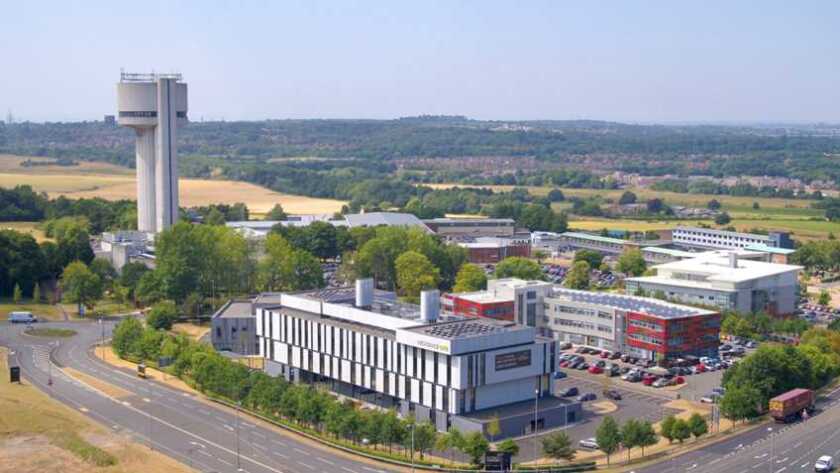The government’s UK Research and Innovation (UKRI) will invest £172 million of the sum, with £38 million coming from IBM, and the work will be focused on the Daresbury Laboratory (pictured) in north-west England.
Dario Gil, director of IBM Research, said: “This partnership establishes our first Discovery Accelerator in Europe driven by our two UK-based IBM Research locations in Hursley and Daresbury as they contribute to our global mission of building discovery-driven communities around the world.”
The UK move comes just days after the European Commission selected a consortium of companies and research institutes to study the design of the future European quantum communication network, EuroQCI. The EU consortium is led by Airbus and includes Leonardo, Orange and PwC.
In April the government of the Netherlands awarded €615 million — more than twice the UK sum — from its national growth fund to accelerate the country’s work in quantum technology. This was followed last week a start on a national headquarters for quantum research in the Netherlands, the House of Quantum in Delft, on the campus of the University of Technology (TU Delft).
The UK government said the centre will bring together world-leading expertise in artificial intelligence (AI) and quantum computing to support the application of the cutting-edge technologies in industry and the public sector.
It listed possible industry applications of quantum computing as including optimising complex logistics such as picking and packing orders in large warehouses for supermarkets; traffic routing; energy distribution; and improving design and manufacturing processes across automotive sectors.
Science minister Amanda Solloway, who is not a scientist, said: “Artificial intelligence and quantum computing have the potential to revolutionise everything from the way we travel to the way we shop.”
Gil added: “The world is facing grand challenges which demand a different approach towards science in computing, including AI and quantum computing, to engage a broad community across industry, government, and academia to accelerate discovery in science and business.”
Professor Mark Thomson, executive chair of the Science and Technology Facilities Council, which runs Daresbury, said the programme “will foster discovery and provide a stimulus for industry innovation in the UK. By allowing industry to access a ready-made community of digital experts and cutting-edge technology, it will provide momentum for new ideas and solutions.”






